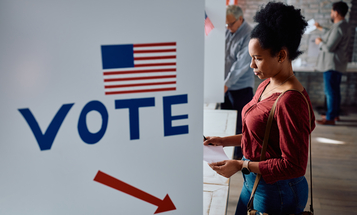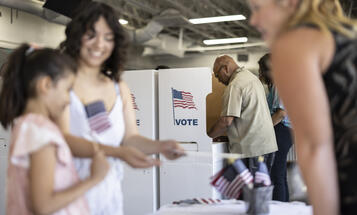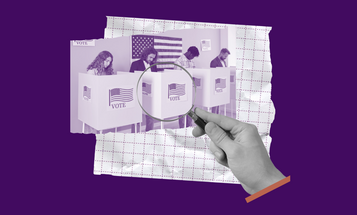
Georgia Failing to Offer Voter Registration to Public Assistance Clients
ATLANTA, GA — Citing clear evidence that low-income Georgia residents are being denied a legally-mandated opportunity to register to vote, attorneys from Project Vote, Demos, the Lawyers' Committee for Civil Rights Under Law (LCCRUL), the ACLU Voting Rights Project, and the law firm of Dechert LLP sent a pre-litigation notice letter on January 19, 2011 to Secretary of State Brian Kemp, on behalf of the Georgia State Conference of the NAACP, demanding that the Secretary immediately act to bring Georgia into compliance with the National Voter Registration Act (NVRA) or face litigation.
Section 7 of the NVRA requires state public assistance agencies providing services such as the Supplemental Nutrition Assistance Program (SNAP), Temporary Assistance to Needy Families (TANF) and Medicaid to provide voter registration services to their clients. In the first two years after the NVRA became effective in Georgia in 1995, the State registered more than 100,000 people through public assistance agencies.
However, according to evidence cited in the notice letter, the Georgia Department of Human Services (DHS) has largely disregarded this law in recent years. By 2008, the number of voter registration applications submitted through public assistance agencies in Georgia had fallen more than 79 percent, to fewer than 11,000 per year. Field investigations conducted by the voting rights groups found that eight out of 11 DHS offices surveyed were not providing voter registration applications to their clients at all, and that voter registration at the other three offices also was not being conducted in compliance with the procedures mandated by the NVRA.
"It is clear that Georgia is not complying with the NVRA, and is potentially neglecting thousands of low-income residents as a result," said Nicole Zeitler, director of the Public Agency Voter Registration Project at Project Vote.
Georgia state law and DHS policy both run afoul of the NVRA's requirements. Georgia state law, for example, only requires that voter registration services be offered to persons completing transactions in person, despite the Department of Justice's instruction that voter registration be provided for remote transactions, too. Plus, the agency's policy — that clients who have once declined an offer to register to vote should never be offered it again — clearly violates the NVRA's requirement that voter registration be offered at each application, recertification, and change of address.
"Georgia's public assistance agencies can and must provide voter registration services," said Bob Kengle, co-director of the Lawyers' Committee's Voting Rights Project. "Congress included Section 7 in the NVRA to ensure that traditionally disenfranchised citizens, including low-income persons, have a periodic opportunity to register or update their registration when they do business with DHS. It is crucial for Georgia public officials to take this responsibility seriously."
In the past several years, lawsuits filed by the same voting rights groups have forced other states that had been disregarding the NVRA to comply, with dramatic results. For example, applications from Missouri public assistance agencies skyrocketed, from fewer than 8,000 a year to over 130,000 a year, following settlement of a suit in that state in 2008. More than 200,000 low-income Ohioans have applied to register since a similar case was settled there at the end of 2009. Cases are currently pending in New Mexico and Indiana, and a similar notice letter was sent to Louisiana on January 12 of this year.
"Georgia's practices have violated the law for some time now," said Allegra Chapman, counsel at Demos. "It is obvious from the number of voter registration applications received by DHS — especially when compared to states now in compliance — that the state is infringing the rights of thousands. Georgia should follow the lead of several states with which we've negotiated to start following the law."
In the letter, the voting rights groups advised that they are eager to work with state officials to bring the state into full compliance with the NVRA to ensure that all Georgians have an equal opportunity to register to vote.
###



